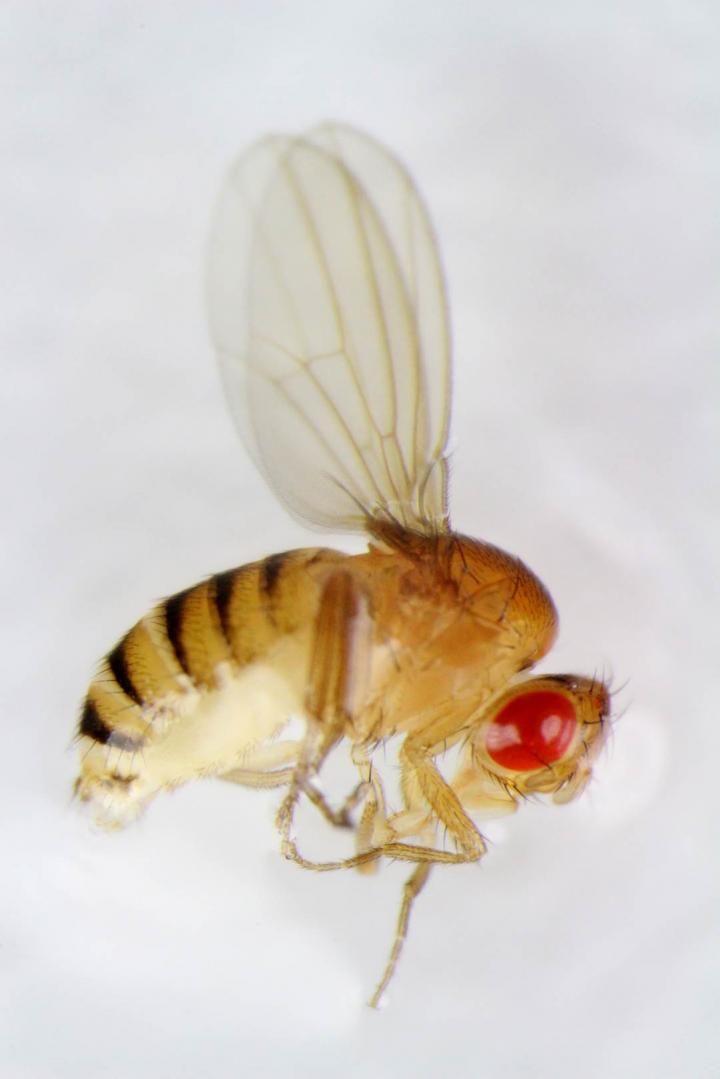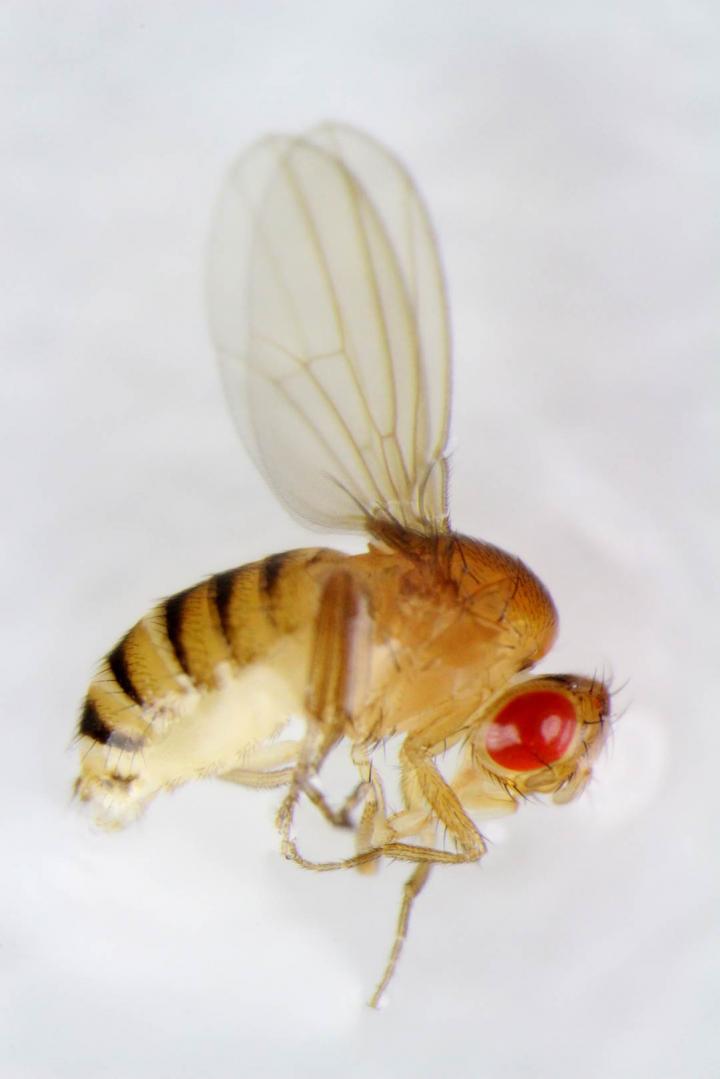
Credit: MU Division of Biological Sciences
Many human health problems are thought to result from our modern diet, especially in industrialized countries. Foremost among these is a growing epidemic of obesity and obesity-related disorders, such as diabetes.
For a long time, scientists have assumed these diet-induced health problems lasted, at most, for the lifetime of the individual and would not be passed on to our kids. However, the recent discovery of so-called obesity genes — genes that increase certain people's risk of obesity — suggests otherwise.
How genes shape the effects of different diets is the goal of a new five-year, $1.6 million grant to the University of Missouri by the National Institutes of Health Institute of General Medical Sciences. The grant was awarded to Elizabeth King, who is an assistant professor in the Division of Biological Sciences in the College of Arts and Science.
Using fruit flies as a model system, King will use the funding to study how animals allocate nutritional resources to regulate their lifespan and reproduction in response to the availability of food in their environment, a fundamental process, called resource allocation.
"We need to know how environment shapes life history to understand why our rich diets cause problems like obesity and diabetes. In part, we have these problems because of the way our bodies allocate food resources," says King. "We can't replay our own human evolutionary history with different variations to see the effects, but we can do these experiments with fruit flies and see how different diets affect genes that control things like fat storage, reproduction, and energy use over time."
For the project, King will perform three large, controlled evolutionary experiments in the lab using fruit fly populations. Each population will be reared on one of three dietary regimes — rich, fluctuating, and deteriorating– and then observed over 25 generations to see what physiological responses and genetic changes evolve over time. King will compare the data between each population to see if and how, at both a whole organism and genetic level, each nutritional environment selects for different resource allocation patterns.
One experiment will test the popular thrifty-gene hypothesis, which has been used to explain today's modern obesity epidemic. According to this hypothesis, an environment punctuated by famine, like that experienced by humans throughout most of our evolutionary history, favors individuals with genes that make them more likely to store fat. These so-called "thrifty genes," according to the hypothesis, are detrimental in an environment where food is abundant.
"In the past, it was selectively advantageous to have a conservative, or thrifty, type of response to resource abundance; you could store those resources for when you had a famine period. Now that we don't experience famine conditions, that leads to over storage, which is no longer adaptive in our current environment," explains King. "One of the dietary environments we will test is this fluctuating resources, and we will see if that response does evolve or is reinforced under that condition as opposed to the other treatments where we would expect less fat storage."
The other two experiments will see what responses evolve in an abundant dietary environment versus one where nutritional resources deteriorate over time.
Fruit Fly
For the project, King will perform three selection experiments using fruit fly populations derived from the Drosophila Synthetic Population Resource.
According to King, this will be the first selection experiment that studies how variability in diet selects for different responses to diet in the future.
The three fruit fly populations will be derived from a special group of flies, known as the Drosophila Synthetic Population Resource (DSPR), whose complete genetic makeup is known. This will make it possible for King to pinpoint specific genes or genome regions that may change in response to the different dietary histories.
The discoveries made in flies, says King, may shed light on human health.
"Flies are being used as a model for all sorts of human diseases, and things like metabolic pathways have a high level of conservation between humans and flies. We believe some of the information we learn from flies will help guide the direction of study in humans," she says.
###
Media Contact
Jeff Sossamon
[email protected]
573-882-3346
@mizzounews
http://www.missouri.edu
############
Story Source: Materials provided by Scienmag





